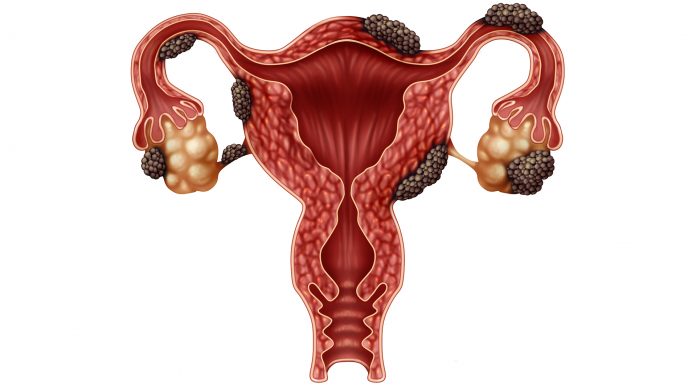
A genetic discovery behind endometriosis could lead to new targeted treatment for the condition, researchers say.
By identifying a specific gene – NPSR1 – that increases the risk of endometriosis, researchers have been able to reveal a potential new nonhormonal drug target that may lead to improved therapy. The study was carried out by a team of researchers from Baylor College of Medicine, the University of Oxford, the University of Wisconsin-Madison, and Bayer AG.
The research has been published in Science Translational Medicine.
Living with endometriosis
Endometriosis is a condition where tissue similar to the lining of the womb starts to grow in other places, such as the ovaries and fallopian tubes. It is a painful and chronic condition, with limited treatment options available. Currently, treatment includes surgery and hormone therapy, which can involve unwanted side effects.
The role of the NPSR1 gene
In previous research, the Oxford team, led by corresponding author Dr Krina T Zondervan, determined a genetic linkage to endometriosis on chromosome 7p13-15 by analysing DNA from families containing at least three women diagnosed with endometriosis. This link was verified by the Baylor team, led by senior author Dr Jeffrey Rogers, who studied the DNA of rhesus monkeys with spontaneous endometriosis at the Wisconsin National Primate Research Center at the University of Wisconsin-Madison.
This validation justified further research through in-depth sequencing analysis of the endometriosis families at Oxford, which narrowed down the genetic cause to rare variants in the NPSR1 gene. Most of the women carrying these rare variants had stage III/IV disease. The Baylor researchers similarly sequenced rhesus monkeys and again found suggestive evidence also in this species. In addition, an Oxford study of more than 11,000 women, including patients with endometriosis and healthy women, identified a specific common variant in the NPSR1 gene also associated with stage III/IV endometriosis.
Commenting on the research carried out in rhesus monkeys, Dr Rogers, Associate Professor at the Human Genome Sequencing Center at Baylor, said: “This is one of the first examples of DNA sequencing in nonhuman primates to validate results in human studies and the first to make a significant impact on understanding the genetics of common, complex metabolic diseases.
“The primate research really helped to provide confidence at each step of the genetic analysis in humans and gave us motivation to carry on chasing these particular genes.”
New potential drug target
The insights revealed in this genetic analysis point to a potential new drug target. As part of this collaboration research, the team at Bayer, in scientific partnership with Oxford University, used an NPSR1 inhibitor to block protein signalling of that gene in cellular assays and then in mouse models of endometriosis. They found this treatment led to reduced inflammation and abdominal pain, thus identifying a target for future research in treating endometriosis.
Zondervan, Head of the department of women’s and reproductive health, Professor of reproductive and genomic epidemiology and Co-director of the Endometriosis CaRe Centre at Oxford, said: “This is an exciting new development in our quest for new treatments of endometriosis, a debilitating and underrecognised disease affecting 190 million women worldwide. We need to do further research on the mechanism of action and the role of the genetic variants in modulation of the gene’s effects in specific tissues. However, we have a promising new nonhormonal target for further investigation and development that appears to address directly the inflammatory and pain components of the disease.”






















